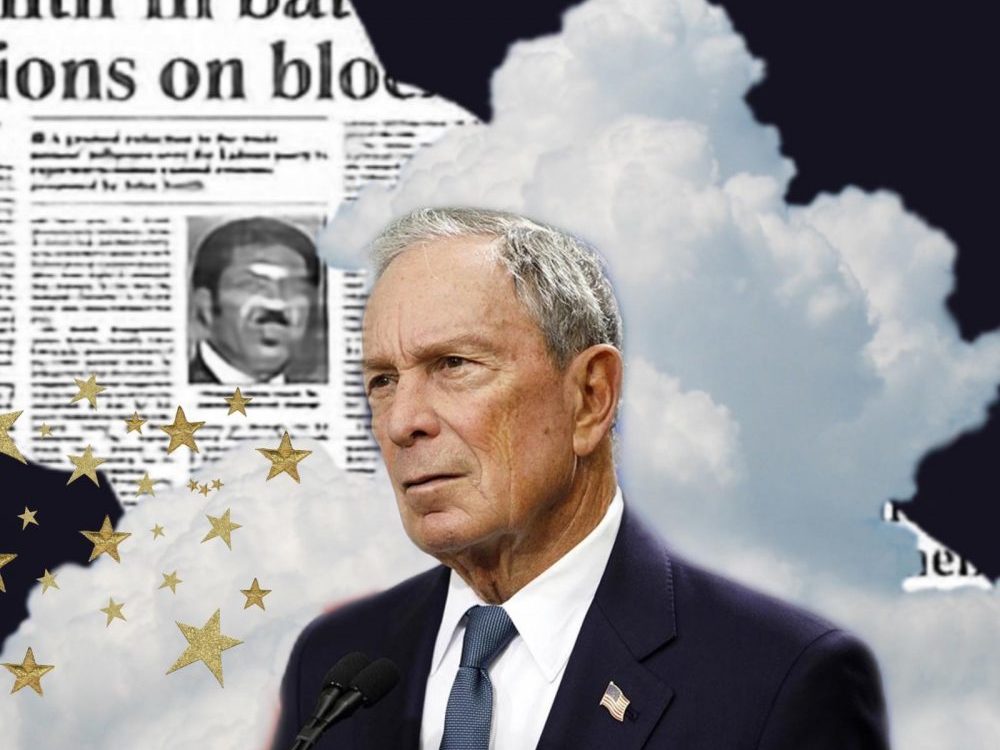If you have a pulse and are on Instagram, you’ve probably seen the many viral meme accounts promoting Bloomberg as the “cool” presidential candidate.

O.k., I admit this made me laugh, but when I sat back and thought about the potential implications of this for one of our most pivotal U.S. elections, I wasn’t laughing anymore.
While wooing gen Z and millennials is increasingly integral to an effective campaign, and it feels good when candidates prioritize our concerns, this is not what Bloomberg is doing. Bloomberg is opposed to the Green New Deal, Medicare For All, and student debt forgiveness – and this opposition is directly antithetical to young people’s interests. Of no small import is that he’s also been sued for sexual harassment on numerous occasions. A meme campaign cannot erase any of that, but it can cause confusion in a race where every single vote counts. When candidates and those in the media try to use cute memes to distract us from the facts – from a candidate’s actual record and actual positions – we are less able to make informed choices as citizens in a democracy.
Bonnie Patten, Executive Director of Truth in Advertising, told Wired, “Social media-influencer political ads are definitely in the gray zone of the law, and I think that’s being charitable.” Because political ads are governed by Federal Election Committee instead of the Federal Trade Commission, and the FEC has not promulgated any real rules on this, influencers are not obligated to tell you if their political promotion is an ad or not. If your fave influencer is obligated to use #ad for her commercial brand deals, why isn’t the same standard applied to her “political brand” deals?
Some who support the use of influencers in political campaigns argue that it’s what the Democrats need to do if they have any hope of catching up with Trump, who has been the “pioneer” of utilizing online influencers. (The Russian security services taught him well.) But do we really want our political candidates to emulate Trump’s manipulative tactics? After all, one of the biggest reasons we’re voting for them is that they’re not Donald Trump. If the Democratic Party is on the side of right (if not might), shouldn’t its candidates be focusing on transparency and honesty, instead of trying to manipulate the American people?
If the Democratic Party is on the side of right (if not might), shouldn’t its candidates be focusing on transparency and honesty, instead of trying to manipulate the American people?
I don’t know about you, but if a candidate resorts to distraction, there’s something they’re hiding. And you know what? Bloomberg is hiding a few things. But that’s a story for a different article. Of course, a candidate must be popular and likable to win an election. (Competency and decency, not so much.) So why don’t candidates simply use themselves as “influencers” to promote their campaign, instead of trying to use others to make them look cool? And the best way to do that, in my opinion, is for them to have policy proposals that inspire and give hope for a better future – and actually have a realistic plan for how to get those proposals enacted.
It’s clear that Bloomberg and other politicians who find meme campaigning attractive are losing sight of the basics of a good campaign in their scramble to the top. It’s also a mistake to underestimate the electorate. While meme campaigning is dangerous because it can easily be used to distract from the facts, treating us as if we won’t notice the manipulation is not a way to build goodwill or popularity. Yes, that’s how Trump became President. But the Democrats – and politicians of every stripe – should hold themselves to a higher standard than our current Liar-in-Chief.









